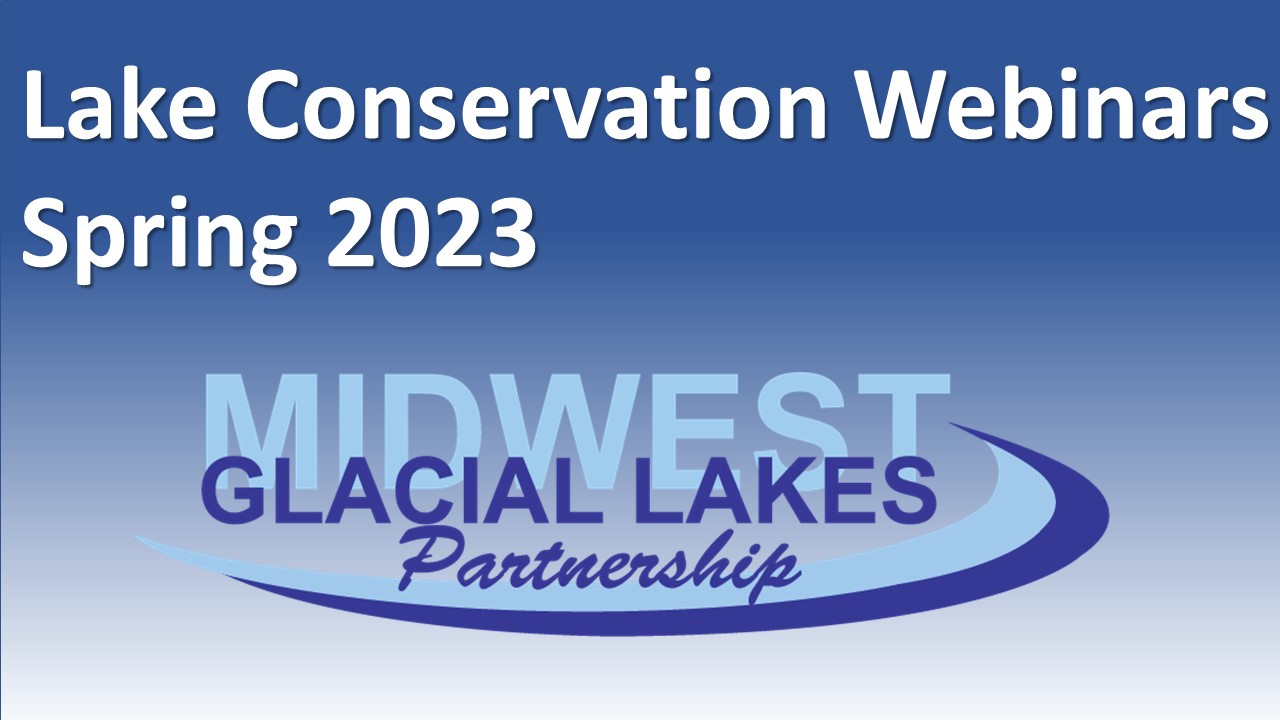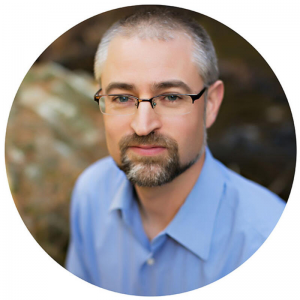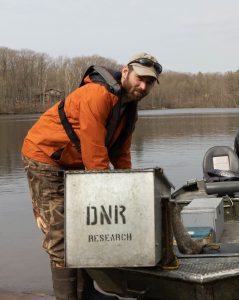The MGLP is excited to announce its Spring 2023 Lake Conservation Webinars. These free webinars address a diversity of lake and fish habitat management issues from carp to climate, from governance to systems thinking, resilience, and outreach to shoreline property owners. Check out our lineup below and register using the links provided. You can see this list of planned webinars as well as archived videos of past webinars at the MGLP Lake Conservation Webinars webpage.
Do you know someone that would be interested in attending? Please forward this email to make sure no one misses out!
Would you like to present a future MGLP Lake Conservation Webinar? We want to hear from YOU! We encourage speakers from diverse backgrounds and areas of expertise in the MGLP webinar series. Please email MGLP Coordinator Joe Nohner to express your interest.
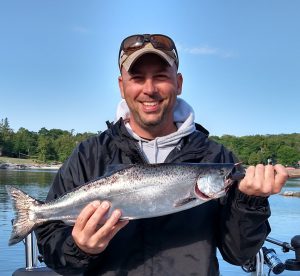
Common Carp Management and the Lost Island Lake Restoration
Mike Hawkins
February 14, 1:00 P.M., Register here
Efforts to reduce Common Carp abundance to improve water quality, fisheries, and aquatic habitat are seldom successful or tend to provide only short-term improvements. However, we were able to achieve long-term (greater than 10 year) improvements through the use of a subsidized commercial fishing technique and limiting spawning areas within the lake’s watershed. In 2010, the Common carp biomass was reduced from 320 lbs/acre to less than 50 lbs/acre. This biomass reduction has been maintained for over eleven years. Meanwhile, improvements to the fishery, water quality, and aquatic plant community were documented. Restricting the movement of common carp in the watershed also allowed for improved habitat and water quality in a number of large wetlands. In 2018, the lake was removed from Iowa’s impaired waters list. This project has had broad community support and involvement and has provided Iowa’s Lake Restoration Program with an alternative to whole-lake fisheries renovations.
Tools for Building Resilience in Midwest Lake Organizations
Eve Whittaker & Chris Solomon
February 28, 1:00 P.M., Register here
Introducing the Lake Resilience and Systems Thinking Hub. Whether you are a lake organization member, environmental educator, or you have an interest in protecting lakes—we are excited to share our resources with you. This webinar introduces resources that were developed and tested alongside lake and watershed conservation groups. These materials are designed to facilitate discussions around long-term changes and planning that lake social-ecological systems may experience. We encourage you to come learn how to use these resources to facilitate discussions with your organization members, your partners, and your leadership team. These tools may guide discussions that focus on a specific, existing issue, or they could be used to direct preemptive planning.
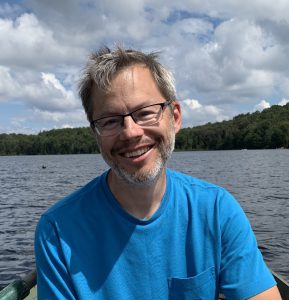
Dissolved oxygen in warming lakes
Steve Jane
March 28, 1:00 P.M., Register here
Dissolved oxygen (DO) is a fundamental component of lake ecosystems. It is an important attribute of habitat in that low levels make habitat unsuitable for most aerobic organisms like fish. In addition, because of its role in redox reactions, DO strongly influences water chemistry. Low oxygen can result in internal loading of limiting nutrients, accumulation of the greenhouse gas methane, as well as formation of the toxic form of mercury in the water column. Therefore, changes to lake DO strongly impact the functioning of lake ecosystems with implications for drinking water quality, biodiversity, and possibly, fish toxicity. In theory, DO should respond to warming surface waters through a variety of mechanisms. This talk will summarize recently published work that used long-term and geographically extensive lake water quality data to explore the relationship between warming of surface waters and DO.
Managing for RADical lake change: applying the Resist-Accept-Direct (RAD) framework to support walleye management in Wisconsin
Abigail Lynch and Colin Dassow
April 11, 1:00 P.M., Register here
Managers facing transforming lakes can benefit from considering broader objectives beyond a traditional focus on resisting change. They can also consider whether accepting inevitable change or directing it along some desirable pathway is more practical and appropriate under some circumstances (the RAD framework). Here, we’ll introduce the RAD framework and highlight a decision-support tool for the walleye recreational fishery in Wisconsin as an example of how to link the RAD framework to real-world management of a large recreational fishery.

On thin ice: Are lakes feeling the heat?
Sapna Sharma
April 18, 1:00 P.M., Register here
Our planet is experiencing accelerated climate warming, with dramatic consequences not only on lake ecology, but also on the ecosystem services we rely on from our freshwater resources. Lakes with seasonal ice cover, which represent more than half of the world’s lakes, are especially sensitive to a changing climate, as ice cover is a strong determinant of lake ecosystem functioning. Lakes are losing ice cover at unprecedented rates. On average, ice duration is shorter by 17 days/century. However, in the past 25 years, lake ice loss is 6 times faster, with some lakes not freezing every winter. By the end of the century, over 200,000 lakes may no longer regularly freeze and almost 6,000 lakes may permanently lose ice cover with climate warming. With reduced ice cover, lakes may stratify earlier which can lead to elevated water temperatures, primary production, and likelihood of algal blooms, some of which may be toxic. Mitigation of greenhouse gases is essential to preserving this ecological, cultural, and economically important resource.

Shoreline Living Volume Two: Property owner experiences in lakefront conservation
Erin Fuller
May 2, 1:00 P.M., Register here
This presentation will introduce the second volume of the MGLP’s Shoreline Living document. With over 90,000 copies in circulation, both versions of the MGLP’s Shoreline Living document are excellent resources for starting conversations about natural shorelines. These magazine-style publications contain articles highlighting families who live on natural shorelines and have taken a variety of steps to benefit themselves and their lakes. Beautiful photographs of each property accompany the articles, where the families share their process in creating, maintaining, enjoying, and protecting their natural shorelines. This presentation will provide an opportunity to hear directly from some of the featured property owners as they share their experiences in conservation.
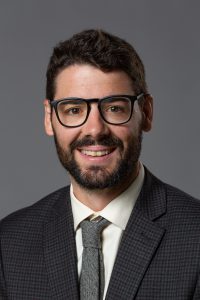
Conservationists’ perspectives of governance in the Iowa Great Lakes
Austin Holland
May 9, 1:00 P.M., Register here
Multiple activities within watershed boundaries impact the quality of freshwater systems. Since many of these systems are managed by complex governance structures, there is a need to understand how social settings and interactions between stakeholders can impact governance. This presentation examines stakeholders’ perspectives of governance in the Iowa Great Lakes region. These lakes are a valuable freshwater system because they are a popular tourist destination and drinking water source for communities, but they reside in a watershed with large amounts of agricultural production and development. Because of these various interests, conservationists must work within a complex governance structure to protect these lakes. This presentation examines conservationists’ perspectives on the region’s environmental pressures, barriers they encounter, and solutions within this system. Our results highlight the difficulties of working with this system to mitigate environmental pressures as well as possible solutions.
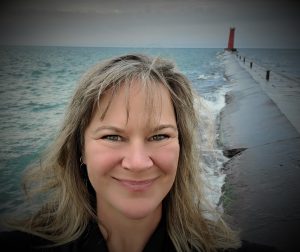
Healthy Watersheds, High-Quality Waters- A New program for protecting the wonderful waters of Wisconsin
Pamela Toshner
May 16, 1:00 P.M., Register here
Wisconsin DNR seeks to protect Wisconsin’s wonderful waters and way of life. Not only is Wisconsin blessed with a landscape filled with water resources, but those lakes, rivers, streams, and wetlands also provide tremendous public health, recreation, and economic benefits. The Healthy Watersheds, High-Quality Waters initiative is a first step towards greater balance between restoration and protection to conserve water resources and the values they provide. The overall goal is to keep 100% of the priority healthy watersheds and high-quality waters within them at or better than their current conditions through 2030. This presentation will share modeling and assessment results, geographic priorities, partner feedback, action plan, and experiences from the first year of implementation.

